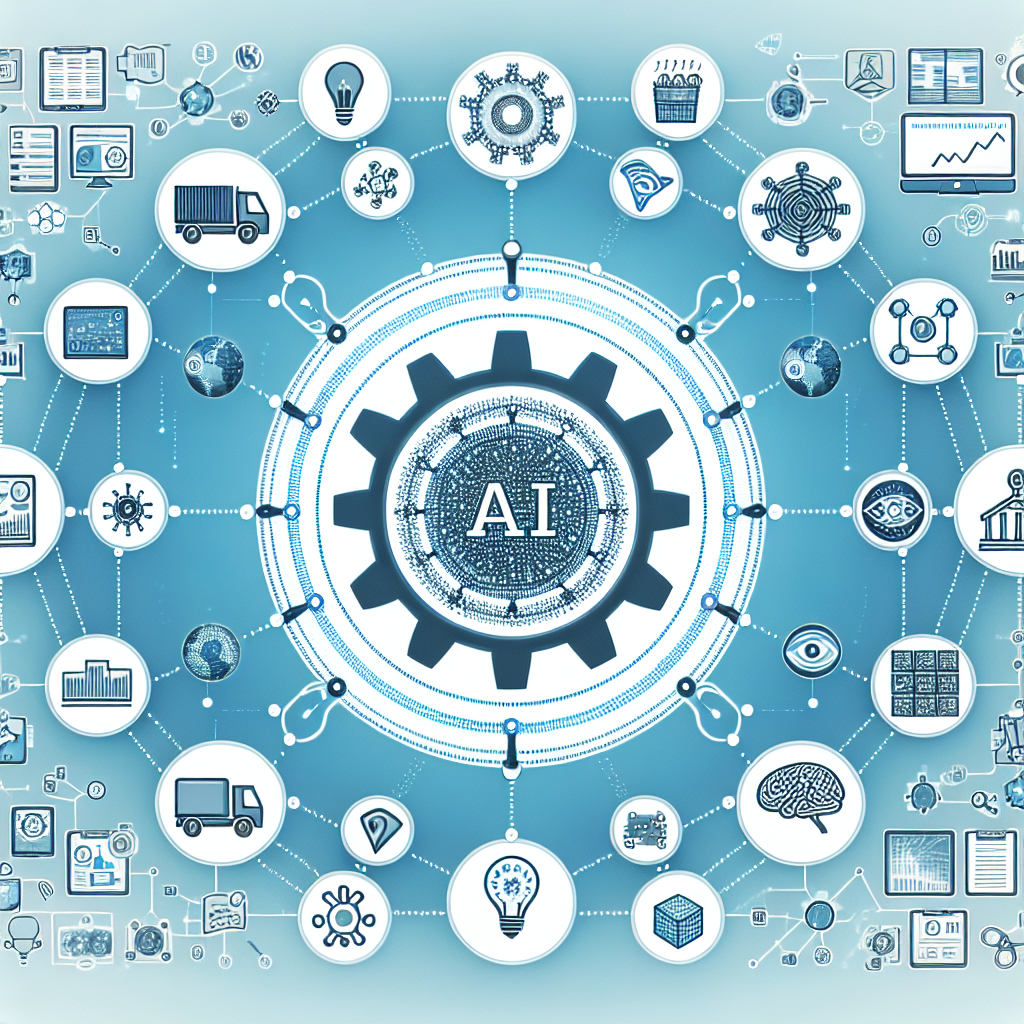In recent years, there has been a significant shift towards the adoption of artificial intelligence (AI) in various industries, including supply chain management. With the increasing complexity and global nature of supply chains, businesses are constantly seeking ways to improve efficiency, reduce costs, and enhance visibility throughout their supply chain processes. AI deployment in supply chain management has emerged as a powerful tool to achieve these goals.
AI technologies such as machine learning, natural language processing, and robotic process automation are being leveraged to automate and optimize various aspects of supply chain operations. From demand forecasting and inventory management to route optimization and supplier management, AI is revolutionizing the way businesses manage their supply chains.
One of the key benefits of AI deployment in supply chain management is improved visibility. By utilizing AI-powered analytics tools, businesses can gain real-time insights into their supply chain processes, enabling them to identify bottlenecks, optimize workflows, and make data-driven decisions. This enhanced visibility not only helps businesses improve operational efficiency but also enhances their ability to respond quickly to disruptions and changes in demand.
AI deployment in supply chain management is also enabling businesses to enhance collaboration and communication with their suppliers and partners. By leveraging AI-powered platforms, businesses can streamline communication, share information in real-time, and collaborate more effectively with their supply chain partners. This improved collaboration leads to better coordination and alignment across the supply chain, ultimately resulting in improved efficiency and customer satisfaction.
Another key advantage of AI deployment in supply chain management is the ability to automate repetitive and time-consuming tasks. From data entry and order processing to inventory tracking and shipment monitoring, AI technologies can automate a wide range of supply chain processes, freeing up valuable time for employees to focus on more strategic tasks. This automation not only improves efficiency but also reduces errors and enhances overall accuracy in supply chain operations.
Furthermore, AI deployment in supply chain management is helping businesses enhance their forecasting and planning capabilities. By analyzing historical data, market trends, and external factors, AI-powered forecasting tools can provide more accurate demand forecasts, enabling businesses to optimize inventory levels, reduce stockouts, and minimize excess inventory. This improved forecasting not only helps businesses reduce costs but also improves customer satisfaction by ensuring products are available when and where they are needed.
Despite the numerous benefits of AI deployment in supply chain management, businesses may encounter challenges when implementing these technologies. One common challenge is the complexity of integrating AI systems with existing supply chain infrastructure and processes. Businesses may need to invest in new technologies, upgrade existing systems, and train employees to effectively utilize AI tools, which can require significant time and resources.
Additionally, businesses may face challenges related to data quality and availability. AI technologies rely on large volumes of high-quality data to generate accurate insights and predictions. Businesses must ensure they have access to the right data sources and implement data governance processes to maintain data quality and consistency. Without the right data, AI deployment in supply chain management may not deliver the expected results.
To help businesses navigate the challenges and opportunities of AI deployment in supply chain management, here are some frequently asked questions:
1. What are the key benefits of AI deployment in supply chain management?
AI deployment in supply chain management offers numerous benefits, including improved visibility, enhanced collaboration, automation of repetitive tasks, better forecasting and planning capabilities, and cost savings.
2. How can AI technologies improve supply chain visibility?
AI-powered analytics tools provide real-time insights into supply chain processes, enabling businesses to identify bottlenecks, optimize workflows, and make data-driven decisions. This enhanced visibility helps businesses respond quickly to disruptions and changes in demand.
3. What are the challenges of implementing AI in supply chain management?
Businesses may face challenges such as integrating AI systems with existing infrastructure, ensuring data quality and availability, and training employees to effectively use AI tools. Overcoming these challenges requires careful planning, investment in technology, and a focus on data governance.
4. How can businesses ensure successful AI deployment in supply chain management?
To ensure successful AI deployment in supply chain management, businesses should start by identifying key areas for improvement, selecting the right AI technologies, securing buy-in from stakeholders, investing in training and development, and continuously monitoring and evaluating performance.
In conclusion, AI deployment in supply chain management is transforming the way businesses manage their supply chain processes. By improving visibility, enhancing collaboration, automating tasks, and optimizing forecasting and planning, AI technologies are helping businesses achieve greater efficiency, reduce costs, and enhance customer satisfaction. While challenges may arise during implementation, businesses that embrace AI technologies in their supply chain operations stand to gain a competitive advantage and drive business growth in the digital age.

